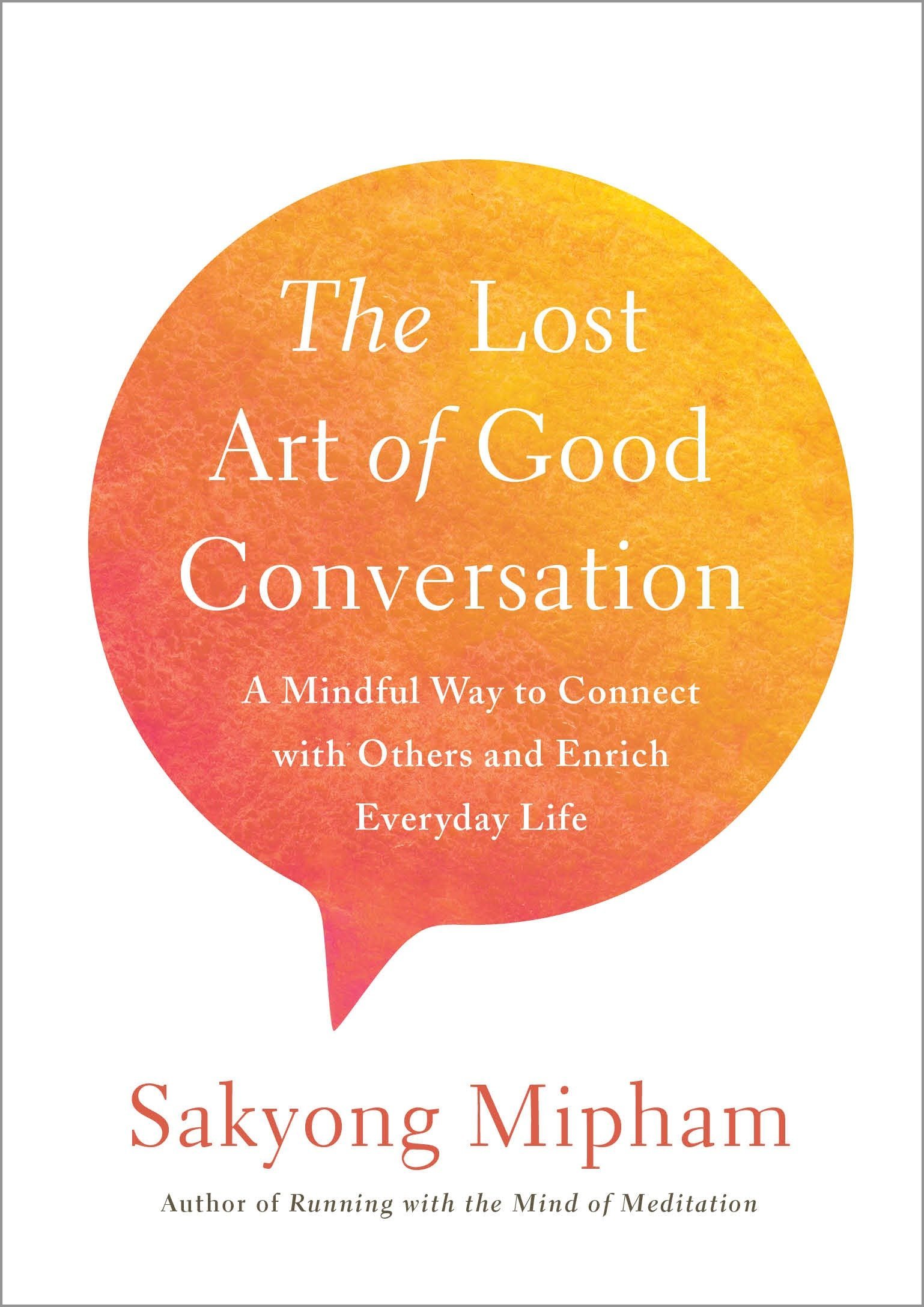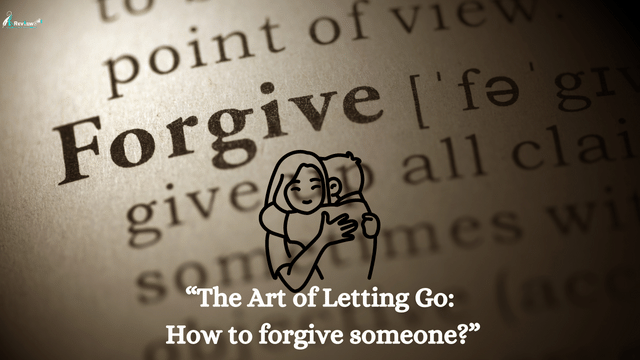If you want to improve your presence and engage better with others, then you need to learn The Art Of Conversation and How To Start One?
Have you ever been when you wanted to start a conversation with someone, but you just couldn’t think of anything to say? Maybe you were at a party, and you saw someone you wanted to talk to, but you didn’t know how to break the ice. Or maybe you’re on a first date, and you’re feeling nervous, so you can’t think of anything to say. If you’ve ever found yourself in one of these situations, then you know how frustrating it can be. You want to make a good impression, but you just don’t know how to start a conversation. Luckily, starting a conversation is not as difficult as you may think. In fact, it can be pretty easy if you follow some simple tips.

The Benefits Of Being An Excellent Conversationalist:
Being an excellent conversationalist can have several benefits in the workplace and in your personal life. These benefits include the ability to build rapport with clients and co-workers, as well as the ability to connect with people on a deeper level. Being an excellent conversationalist has academic benefits–it can help you get better grades and become more knowledgeable about a variety of subjects.
To become an excellent conversationalist, One approach is to pay attention to the way you communicate with others. Keep in mind that your tone of voice, body language, and use of words all play a role in how people perceive you. Practice makes perfect–don’t be discouraged if your conversation skills aren’t perfect from the start. With practice, you will improve.
How To Keep A Conversation Going?
There are many skills that are needed to be successful in the workplace. One of these is the ability to have a conversation. This is something that can be learned, and with some practice, you can become superb at it. Here are some tips on how to elevate your conversation skills.
- Make sure that you’re well-prepared for the conversation by thinking about what you want to say beforehand. This will help ensure that you don’t get stuck talking about topics that you aren’t concerned with.
- Don’t take the other person’s words too seriously. If they make a mistake or say something unexpected, don’t take it personally. Just chalk it up to experience and move on.
- Be patient with people–no one is perfect and everyone has their own way of speaking and thinking. Allow them time to communicate effectively.
- Know when to end a conversation–if someone hasn’t responded after a few minutes, it might be best to move on and find someone else who would be more interested in what you have to say. Conversation skills are important in any situation, but they are important in the workplace because networking opportunities abound there!
Signs That You’re A Brilliant Conversationalist
There are many signs that you’re a brilliant conversationalist. Foremost, you make others feel comfortable. You’re patient and understanding, which allows people to open up to you. You take the time to really understand what someone is saying before responding. And finally, you ask follow-up questions–this shows that you’re interested in hearing more about what they said.
These qualities make for an engaging conversation–one that keeps people talking long after the original topic has been covered. Plus, having a sense of humor never hurts! It helps to lighten the mood and break the ice (or barriers!) when meeting new people.
There are a few things you can do to help improve your skills as a brilliant conversationalist. First, attempt to be aware of what is being said around you. This means paying close attention not just to the words themselves, but also to the tone and inflection of each person’s voice. Second, take time to really reflect on what you have heard. Ask yourself questions to better understand the other person’s perspective. And finally, remember that humor is key–it can both break the ice and add some levity to any conversation.

Master The Art Of Conversation:
Mastering the art of conversation can be an arduous task. However, once you master it, you will have more successful and enjoyable interactions with others. The art of conversation involves being able to focus, as well as being able to respond appropriately. It also requires being interested in what the other person has to say and engaging in back-and-forth dialogue. If you can master these skills, you will be well on your way to becoming a brilliant conversationalist.
The first step is to develop an attitude that will serve you well when you are having a conversation. It is important to act respectfully and be willing to hear others. Many people don’t listen because they think that listening is boring and a waste of time. It’s not true. Listening is not only fun, but it is also very fascinating. To be a good listener, learn how to focus on what the other person is saying. That makes people want to talk to you.
- Understand the context of the conversation. You should pay attention to the tone of voice. For example, if you are having a discussion about politics, try to use the right tone of voice when you talk about politics.
- Aware of your body language. For example, if you are sitting down, put your arms away from you. If you are standing up, put your hands in your pockets.
- Pay attention to your facial expressions. For example, if you are smiling, smile and nod your head when people are talking to you. You should also look into the eyes of the people you are talking to.
- Take part in the conversation. You should say a few words to start off the conversation.
How to Start a Conversation with Anyone?
When you’re out in public, you’ll probably want to start a conversation with someone at some point. Whether you’re looking to make a new friend or just want to talk to someone, it’s helpful to know how to start a conversation.
One way to start a conversation is by using body language. If you make eye contact and smile, the other person is more likely to want to talk to you. You can also try starting with small talk. Talk about the weather or something that’s happening around you.
If you’re struggling to think of something to say, ask a question. Try to ask open-ended questions that can’t be answered with a yes or no. For example, instead of asking “Do you like dogs?” say “What pets do you have?” This will help keep the conversation going.
If the conversation dies down, don’t be afraid to move on to another topic. You can also say something like “It was a pleasure talking to you” and see if the other person wants to keep talking.
Starting conversations can be tough, but it gets easier with practice. Just remember to be yourself and relax. The other person is probably just as nervous as you are!
If you want to expand your conversation skills, there are some things you can do to practice and become more confident. Try practicing with a friend or family member. Attend social events where conversations will occur (such as Club, school, offices). Keep learning about new topics so that you have something new to talk about when engaging in conversations.
These are just a few tips on how to start a conversation. However, the most important thing is that you take the time to practice and get better at talking with others. With enough effort and dedication, you will become an expert conversationalist who can handle any situation!

Tips on How to Improve Your Conversation Skills;
If you’re looking to improve your conversation skills, there are a few things you can keep in mind.
- Good eye contact is important. When you’re talking to someone, maintain eye contact so that they know you’re interested in what they’re saying.
- Ask open-ended questions. These are questions that can’t be answered with a simple yes or no. They’ll help keep the conversation going and show that you’re truly interested in hearing what the other person has to say.
- Be aware of your body language. Avoid crossing your arms or looking around the room while someone is talking to you. Instead, try to mirror their body language so that they feel comfortable talking to you.
- Understanding the other person’s perspective. This means being able to understand their goals, motivations, and feelings. It also means being able to see things from their perspective.
- Talking about something you’re passionate about. This will make it easier to connect with the other person. Be genuine and authentic in your conversations. Don’t be someone you’re not–just be yourself!
- Listen more than you talk–let the other person speak first and then respond. And if there are questions that arise during a conversation, don’t be afraid to ask them!
These are a few simple things you can do to improve your conversation skills.
How does the art of conversation help you in the workplace?
The art of conversation can be a powerful tool in the workplace. Having the ability to effectively communicate with colleagues, supervisors, and clients is essential for success. Excellent communication skills can help build relationships, foster collaboration and problem-solving, and ultimately lead to greater productivity. Whether it’s having a face-to-face chat at the office or speaking on the phone with a client, mastering the art of conversation is an invaluable skill that can have lasting benefits for your career.
- Don’t be afraid to ask for help.
- Have an opinion and share it.
- Learn to listen without judging.
- Be respectful and appreciative.
- Ask questions – Don’t just listen.
- Offer genuine compliments–Not all compliments are created equal.
- Smile more–Not only is smiling infectious, it makes you look happier than you are.
- Listen more–If you’re trying to understand what someone is saying, don’t interrupt or finish their sentences.
- Keep eye contact–Maintaining eye contact with people helps build trust. It also shows that you’re focused on them, which gives them the feeling that you value them as a person.
- Use humor–Humor is a great way to build rapport and put others at ease.
- Practice active listening–Active listening is listening with your full attention, while asking clarifying questions when necessary.

How To Make Small Talk?
Making small talk is a great way to break the ice when starting a conversation. It can help you form connections with new people, and even help you find common interests. Small talk also allows for natural conversations to flow, making it easier for deeper conversations to come about. Knowing how to make small talk can be difficult, but following a few simple steps can help you create wonderful conversations without feeling awkward or uncomfortable.
Small talk is an essential skill for networking and building relationships, but it’s challenging to know how to make small talk. The key is to focus on finding commonalities and topics of interest, and to avoid controversial subjects. Here are some tips for making small talk:
- Make eye contact and smile. This will help put the other person at ease and make them more likely to want to talk to you.
- Ask open-ended questions. These are questions that can’t be answered with a simple yes or no, and they’ll help keep the conversation flowing.
- Find common ground. Talk about things you have in common, such as where you’re from, your favorite foods, or your hobbies.
- Avoid controversial topics. You don’t want to risk offending or upsetting the other person, so stick to safe topics like the weather or current events.
- Keep the conversation light and positive. Small talk should be enjoyable, so try to steer clear of negativity.
- Wrap up the conversation politely when you’re ready to end it. Thank the other person for their time and say you hope to talk to them again soon.

How do We judge A Successful Conversation?
In order to judge whether or not a conversation is successful, we usually consider how well both parties communicated with each other and how they felt afterwards. If both sides felt like they could express themselves and understand the other person, then the conversation is considered successful. However, there are also times when a conversation can be successful, even if it doesn’t necessarily end on a positive note. For example, if two people have a difficult discussion without getting too emotional or angry, that can also be seen as a successful conversation. Ultimately, it really depends on the situation and the people involved.
How To End A Conversation?
Ending a conversation can be difficult, especially if you’re uncertain how the other person feels. However, there are some things you can do to make it easier. First, try to gauge the other person’s interest in the conversation. If they seem like they’re ready to end it, then take the hint and end the conversation yourself. You can also try to find a natural break in the conversation, such as saying you need to go to the bathroom or get something to eat. Finally, if all else fails, simply say that you have to thank the other person for their time.
There are several ways to end a conversation in a healthy and respectful manner. Here are some tips:
- Summarize the conversation: Before ending the conversation, you can summarize the main points or key takeaways to ensure that you and the other person are on the same page and that no important information was missed. This can also provide closure and help to ensure that the conversation was productive and meaningful.
- Thank the other person: Expressing gratitude and appreciation can go a long way in ending a conversation on a positive note. You can thank the other person for their time, for sharing their thoughts and perspectives, and for engaging in the conversation. This can show respect and can foster goodwill and positive feelings.
- Set a follow-up: If there are any open items or action items that need to be addressed, you can set a follow-up to discuss them further or to act. This can help to ensure that the conversation doesn’t end abruptly and that it dealt any unresolved issues with in a timely and manner.
- Offer a farewell: When ending the conversation, you can offer a simple and polite farewell, such as “It was a pleasure talking to you” or “Take care.” This can signal the end of the conversation and can allow both parties to move on to other things.
Overall, ending a conversation in a healthy and respectful manner can help to foster positive relationships and to ensure that the conversation was productive and meaningful. By summarizing the conversation, thanking the other person, setting a follow-up, and offering a farewell, you can end the conversation in a way that is respectful and respectful of the other person’s time and feelings.

Keep the Conversation Going:
When you’re at a networking event, it’s important to keep the conversation going. This can be difficult, especially if you don’t know anyone at the event. However, keeping the conversation going is a great way to make new connections and learn more about the people you meet. Here are a few tips to keep the conversation going:
- Ask questions: Asking questions is a great way to keep the conversation going. Not only will you learn more about the person you’re talking to, but you’ll also keep the conversation from becoming stagnant.
- Find common ground: If you can find something that you have in common with the person you’re talking to, it will be easier to keep the conversation going. This can be anything from a shared interest to a similar background.
- Be interested: It’s important to show that you’re interested in what the other person has to say. This can be done by maintaining eye contact, nodding your head, and asking follow-up questions.
If you follow these tips, you will have a great conversation at your next networking event!
The Fine Art of Small Talk:
Small talk is the act of making conversation to create a rapport or bond with someone. We consider it a social lubricant because it allows people to interact without feeling awkward or uncomfortable. Small talk can fill awkward silences, to make new friends, or to get to know someone better.
Small talk topics can include the weather, current events, sports, TV shows, books, music, movies, hobbies, and work. The key to making small talk is to keep the conversation light and positive. Avoid controversial topics or anything that might make the other person feel uncomfortable.
If you’re not sure how to start a small talk conversation, simply ask the other person how their day is going. Once you’ve broken the ice, you can move on to more interesting topics. Remember, the goal of small talk is not to delve deep into a subject, but to connect with the other person.

Body Language Is A Must:
Body language is an important aspect of communication, and it can play a significant role in starting a conversation with someone. When we meet someone new or engage in a conversation, our body language often conveys our emotions and intentions. By paying attention to and using appropriate body language, you can increase your chances of starting a successful conversation with someone.
Here are a few tips for using body language to start a conversation:
- Make eye contact: Maintaining eye contact shows you are interested in the conversation and helps to establish a connection with the other person.
- Smile: A genuine smile can help to put the other person at ease and make them feel more comfortable talking to you.
- Use open body language: Keep your body relaxed and open, with your arms uncrossed and your posture upright. This can make you appear approachable and welcoming.
- Mirror the other person’s body language: By copying the other person’s body language, you can create a sense of rapport and make them feel more comfortable talking to you.
Overall, body language is a powerful tool that can help you start a conversation and build a connection with the other person. By using appropriate body language, you can make a positive first impression and establish a foundation for a successful conversation.
| Service | Main Features | Score | |
|---|---|---|---|
1 Badge | The Lost Art of Good Conversation: A Mindful Way to Connect with Others and Enrich Everyday Life
| BuyNowRead Full Review |
What Kinds of Questions Should I Ask?
Asking questions is a great way to start a conversation and keep it flowing. However, it’s important to choose the right kinds of questions to ask to make the conversation better. Here are a few tips for selecting questions to ask:
- Avoid closed-ended questions: These are questions that can be answered with a simple “yes” or “no” response. Instead, try to ask open-ended questions that encourage the other person to elaborate and share more about themselves.
- Avoid personal questions: It’s important to respect the other person’s boundaries and privacy. Avoid asking overly personal questions, especially if you don’t know the person well.
- Ask about their interests and experiences. People enjoy talking about themselves and their interests. Asking about their hobbies, passions, and experiences can help to create a more engaging and interesting conversation.
- Use follow-up questions: After the other person has shared something, try asking follow-up questions to show that you are listening and interested in the conversation.
By choosing the right kinds of questions to ask, you can help to create a more engaging and enjoyable conversation. Remember to listen carefully to the other person’s responses and be open to their ideas and perspectives.

Let the other person do the talking:
Allowing the other person to do the talking can be an effective strategy for improving a conversation. When we engage in a conversation, it’s important to remember that it’s a two-way exchange and both parties should share their thoughts and perspectives.
Here are a few tips for letting the other person do the talking:
- Practice active listening: Focus on what the other person is saying and pay attention to their body language and nonverbal cues. Show that you are listening by nodding and making eye contact, and try to resist the temptation to interrupt or interject.
- Ask open-ended questions: Instead of asking closed-ended questions that can be answered with a simple “yes” or “no,” try asking open-ended questions that encourage the other person to elaborate and share more about themselves.
- Avoid dominating the conversation: It’s important to give the other person space to share their thoughts and opinions. Avoid monopolizing the conversation or constantly talking about yourself.
Listen with Your Eyes and Your Ears:
To truly listen, you need to use both your eyes and your ears. It’s easy to get distracted and just focus on what is being said, but if you’re not paying attention to the body language and facial expressions of the person speaking, you’re only getting half the story. Listening with your eyes means observing everything, from the way they’re standing to the way they gesture while they’re talking. It can give you important clues about what they’re really trying to say. And of course, actually hearing the words they’re saying is important too! Paying attention to both what is being said and how it’s being said will help you become a better listener.
Show Some Enthusiasm and Energy:
When you’re talking to someone, it’s important to show that you’re interested in the conversation. This means being enthusiastic and having energy. If you’re not interested, the other person will tell and the conversation will be less enjoyable for both of you. There are a few ways to show that you’re into the conversation. You can make eye contact, nod your head, and smile. You can also ask questions to show that you’re listening and want to know more about the other person. When you have a delightful conversation, it’s enjoyable for both of you and leaves both of you feeling good.
Avoid controversial topics:
A friendly conversation is one where both parties feel heard and respected. In order to achieve this, it is best to avoid controversial topics. These topics can be anything from politics to religion, and they have a tendency to divide people rather than bring them together. If you stick to safe topics, you can avoid any uncomfortable situations and keep the conversation flowing smoothly.
Conclusion:
In conclusion, the art of conversation is an essential skill that can have a significant impact on our personal and professional lives. Whether we are meeting someone new, networking with colleagues, or simply chatting with friends and family, the ability to start and maintain a conversation is crucial to building relationships and making connections.
Starting a conversation can intimidate, but with a little preparation and practice, it becomes easier and more natural. Body language is an important aspect of communication, and by using appropriate nonverbal cues, we can create a more welcoming and engaging environment for conversation.
Asking questions is also an effective way to start a conversation and keep it flowing. By choosing the right kinds of questions to ask, we can create a more engaging and enjoyable conversation. Open-ended questions that encourage the other person to share more about themselves and their experiences are more effective than closed-ended questions that can be answered with a simple “yes” or “no.”
It’s also important to remember that conversation is a two-way exchange, and both parties should share their thoughts and perspectives. By allowing the other person to do the talking and practicing active listening, we can create a more balanced and enjoyable conversation.
Besides these strategies, it’s important to be mindful of the other person’s boundaries and show genuine interest in what they have to say. By listening actively and being open to their ideas and perspectives, we can create a deeper connection and build stronger relationships through conversation.
Overall, the art of conversation is a valuable skill that can enhance our personal and professional lives. With a little effort and practice, we can become more confident and effective communicators and enjoy more meaningful and enjoyable conversations with others.





